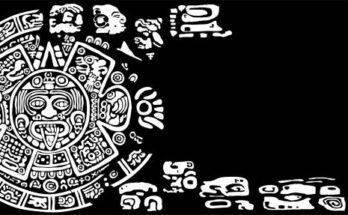In a world marked by diversity and individuality, the intertwining of religion and spirituality has been a constant source of contemplation and debate. While many find solace in the rituals and traditions of organized religion, others seek a more personal and introspective connection with the divine through spirituality. In this exploration, we delve into the ways one can disconnect religion and spirituality, allowing for a more personalized and authentic spiritual journey.
Understanding the Dichotomy
 (Photo from iStock)
(Photo from iStock)
Religion and spirituality, often used interchangeably, are distinct concepts with varying implications. Religion typically involves adherence to organized beliefs, rituals, and practices within a community, often guided by established doctrines. Evidently, spirituality, on the other hand, is a more personal quest for meaning, purpose, and connection with something greater than oneself, transcending the boundaries of organized institutions.
Embrace Open-mindedness
To disconnect religion and spirituality, it is crucial to cultivate an open-minded approach. Acknowledge and respect the diversity of beliefs and practices that exist within and outside traditional religious frameworks. Open-mindedness allows for the exploration of various spiritual paths without being confined by rigid doctrines.
Define Your Beliefs
Take time for introspection to define your own beliefs and values. Reflect on your understanding of the divine, the purpose of life, and the nature of existence. This process of self-discovery is fundamental to establishing a personal spiritual foundation that aligns with your individual convictions rather than conforming to a prescribed set of beliefs.
Explore Different Spiritual Traditions
Diversify your spiritual exploration by delving into various traditions, both religious and non-religious. Attend workshops, read literature, and engage in conversations with individuals from different spiritual backgrounds. This exposure provides a broader perspective, enabling you to extract wisdom and insights from diverse sources without being bound by the constraints of a singular religious doctrine.
Incorporate Mindfulness Practices
Spirituality often involves a heightened awareness of the present moment. Mindfulness practices, such as meditation, deep breathing, or yoga, can be instrumental in fostering a direct connection with the spiritual aspect of life. These practices encourage self-reflection and inner peace. Moreover, allowing you to detach from the rigid structures of organized religion and tap into a more personal, introspective spirituality.
Focus on Personal Growth
 (Photo from iStock)
(Photo from iStock)
Disconnecting religion and spirituality entails shifting the emphasis from external doctrines to internal growth. Cultivate virtues such as compassion, empathy, and gratitude, which contribute to personal development and spiritual well-being. Eventually, by focusing on these qualities, you can nurture a sense of spirituality that transcends the boundaries of religious dogma.
Question Assumptions and Beliefs
Challenge preconceived notions and question assumptions that may have been ingrained through religious teachings. Critical thinking plays a pivotal role in separating personal beliefs from external influences. By examining and reassessing your convictions. Moreover, you empower yourself to discern between elements of spirituality that resonate with you and those that may be remnants of religious indoctrination.
Build a Supportive Community
While disconnecting from organized religion, it’s essential to build a supportive community that aligns with your evolving spiritual journey. Seek like-minded individuals who share similar values and perspectives on spirituality. This community can provide encouragement, understanding, and a sense of belonging, fostering growth and exploration on your unique path.
Embrace Nature and the Universe
Connecting with the natural world and the vastness of the universe can be a powerful way to nurture spirituality. Spend time in nature, gaze at the stars, and contemplate the mysteries of existence. Further, this connection with the broader cosmos can evoke a sense of awe and wonder, transcending religious boundaries and fostering a deep, personal connection with the spiritual dimension.
In the intricate tapestry of human existence, the quest for meaning and spiritual fulfilment is a deeply personal journey. Disconnecting religion and spirituality involves embracing individuality, questioning established beliefs, and forging a path that resonates with your unique understanding of the divine.
Cultivating a Personal Relationship with the Divine
To disconnect religion and spirituality is to recognize that the divine can be personally experienced rather than solely mediated through religious institutions. This involves cultivating a direct and intimate relationship with the sacred, unmediated by religious authorities or predefined doctrines. Furthermore, practices such as prayer, contemplation, and intuitive reflection become pathways to connect with the divine on a deeply personal level, fostering a sense of spiritual autonomy.
Transcending Fear and Guilt
 (Photo from iStock)
(Photo from iStock)
Organized religions often instill a sense of fear and guilt as mechanisms for control and adherence to prescribed norms. Disconnecting from this paradigm involves releasing oneself from the shackles of fear-based spirituality and guilt-induced morality. Moreover, embracing spirituality free from fear allows for a more authentic and liberating exploration of one’s connection with the divine, emphasizing love, compassion, and acceptance.
Honouring Cultural and Historical Contexts
Recognizing the cultural and historical contexts of religious traditions is essential in navigating a path of spirituality disconnected from organized religion. Understanding the rich tapestry of human history and the evolution of diverse spiritual beliefs. Contributes to a more nuanced and appreciative approach. This acknowledgment enables individuals to extract wisdom from various traditions. Eventually, while discerning aspects that may not align with their evolving spiritual understanding.
Continual Evolution of Beliefs
Spirituality disconnected from religion is an ever-evolving journey. As one gains new experiences, encounters diverse perspectives, and undergoes personal growth, beliefs naturally evolve. Embracing the fluidity of spiritual beliefs allows individuals to navigate their unique path without the fear of contradicting established doctrines. This continual evolution encourages a dynamic and vibrant spirituality that resonates with the changing seasons of life.
Conclusion
In the pursuit of disconnecting religion and spirituality, individuals embark on a profound journey of self-discovery, autonomy, and transcendence. This odyssey involves embracing diversity, cultivating personal relationships with the divine, transcending fear and guilt. Honouring cultural contexts and allowing beliefs to evolve.
As one embarks on the journey of disconnecting religion from spirituality. It becomes apparent that the essence of spirituality lies in the pursuit of transcendence beyond the constraints of religious dogma. Evidently, this transcendence involves a shift from external rituals and doctrines to an internal exploration of the soul.
Reference:
Boldsky
Want to know about creation of the world, click on the link below:
How Can Religion Be Created? Exploring the Origins and Evolution




